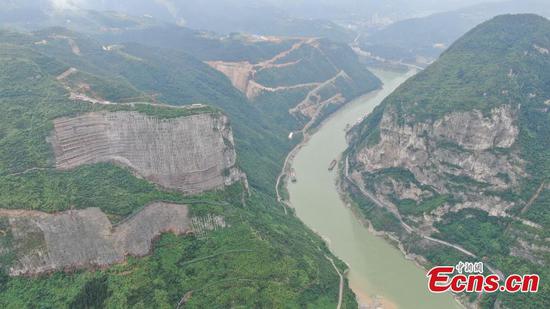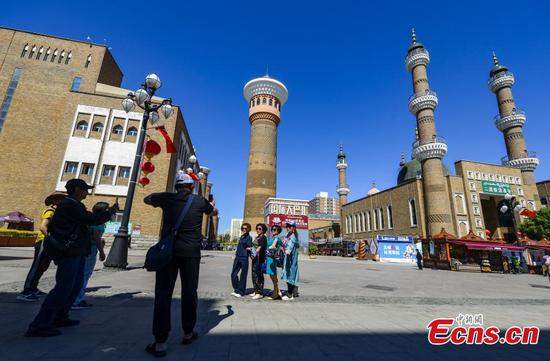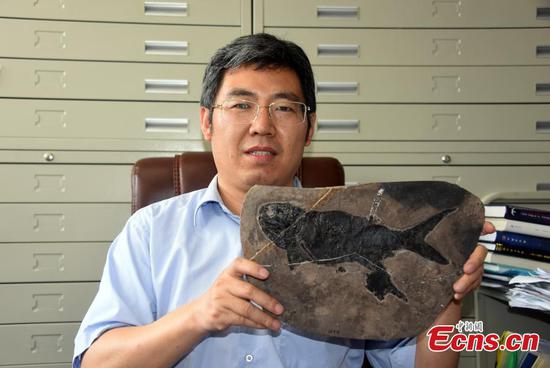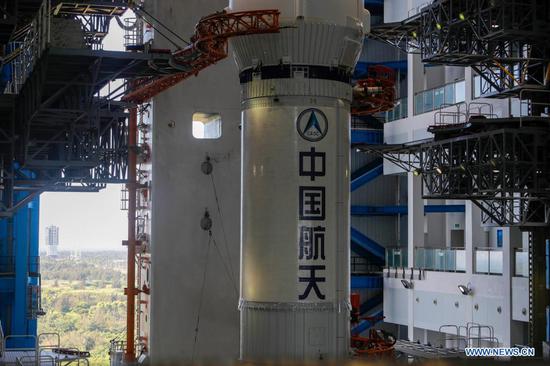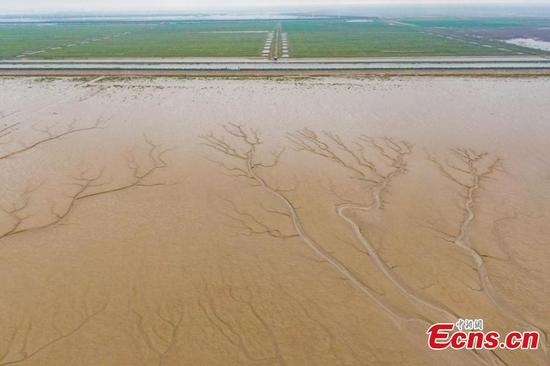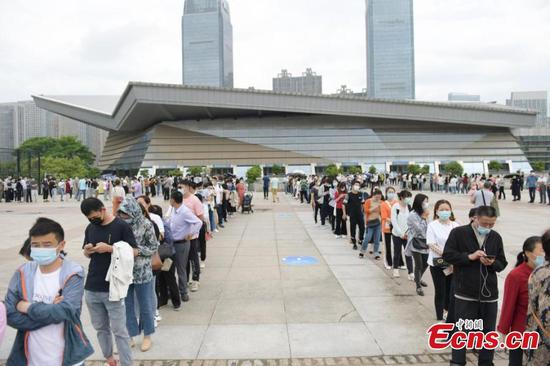
A time tunnel effect is displayed at Guizhou province's big data demonstration center in Guiyang. (Photo/Xinhua)
Provincial Party chief says data-based growth integrated with real economy
Mountainous Guizhou province has become a magnet for investment after recently eradicating some of the country's most entrenched poverty and embarking on a greener development path, its Party chief said on Thursday.
All the 9.23 million poor people in rural parts of the province in 2012 had shaken off that plight by the end of last year, with almost 2 million of them moved out of isolated mountain villages, Shen Yiqin, Guizhou's Party secretary, told a news conference in Beijing.
She said the province's GDP reached 1.78 trillion yuan ($276 billion) last year, placing it 20th out of 31 provincial-level regions, up from 26th nine years ago. Its per capita GDP climbed from last place to 25th over the same period.
"Today's Guizhou has ripped off the poverty label attached to it for thousands of years and is marching toward common prosperity," Shen said.
Underpinning the progress has been the rapid expansion of infrastructure such as roads and bridges.
Shen said the province was a front-runner among western regions in bringing highways to all its counties and now has a sprawling high-speed railway network connecting it to major city clusters around Beijing, Shanghai, Chongqing and Guangzhou, Guangdong province.
The province's expressway network now extends more than 7,600 kilometers, and it is home to more than half of the world's highest bridges.
The developments have given it an advantageous position in opening up to the outside, Shen said.
Guiyang, the provincial capital-where tech firm Apple stores its Chinese user data-has in recent years become home to some world-class data storage centers, bolstering the local economy.
Shen said data-based growth has achieved "profound integration" with the province's real economy.
Lu Yongzheng, head of the province's publicity department, said Guizhou has attracted investments from 26 foreign enterprises that rank among the world's top 500 companies.
He added that while protecting data security and privacy, the provincial authorities will also open up public data in an effort to promote the development of the data industry.
Lu said the province will continue to protect user data and privacy "as it has always done", and has invited domestic and foreign enterprises to "sail the blue sea of data", share the data dividend and together build a community of shared future for humanity.
The province rolled out the nation's first local law on big data administration in 2016, and has unveiled other regulations governing data collection, sharing and security, he said.













